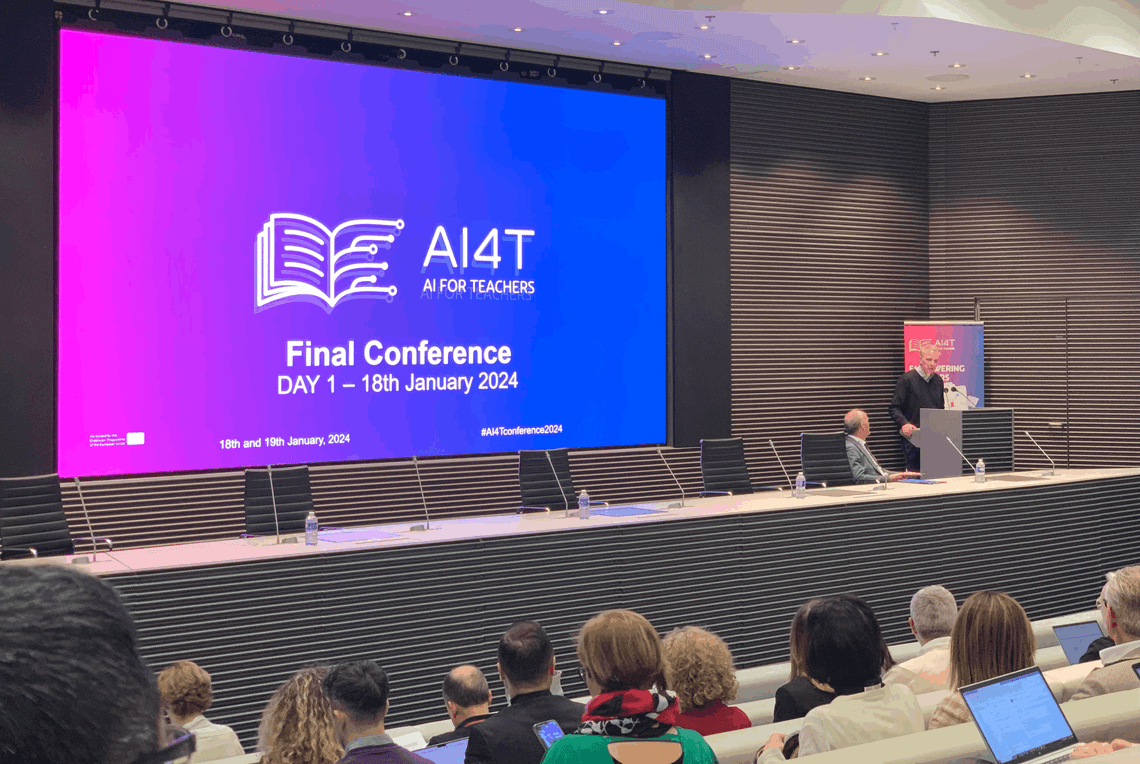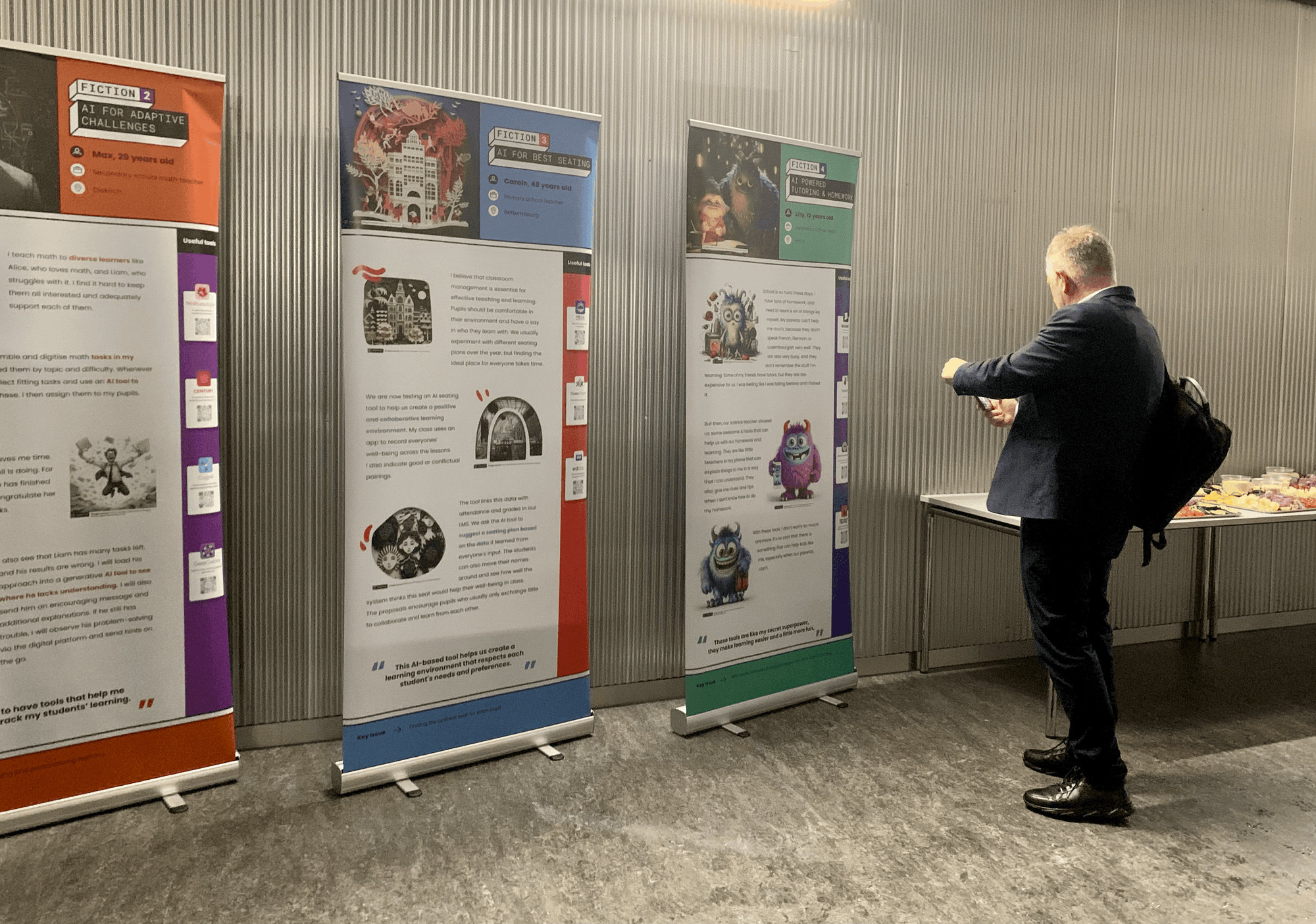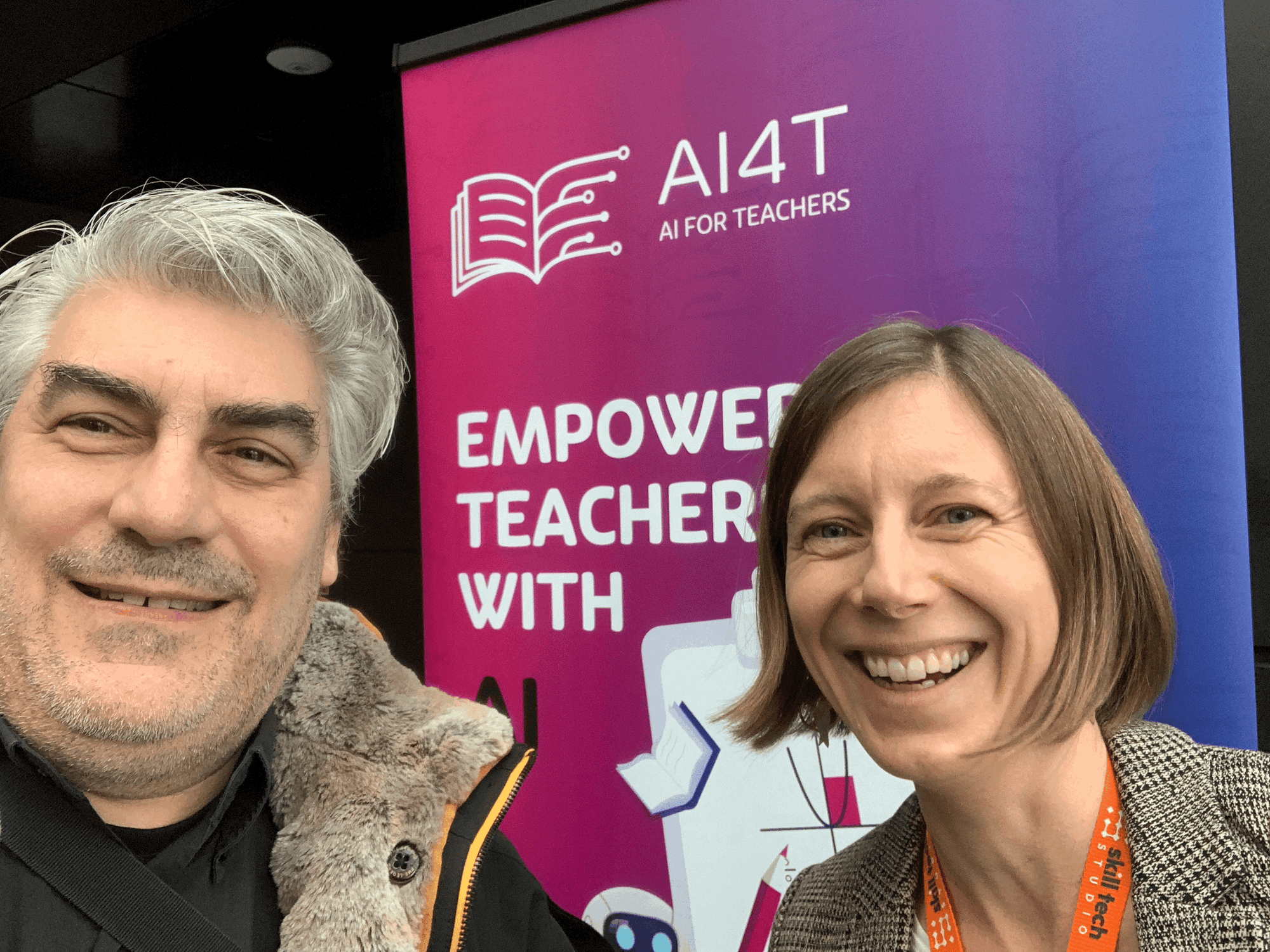"AI4T" Conference: Highlights and Conclusions

The LMDDC was delighted to attend the AI4T project final conference last week. The Erasmus+ project brought together legislators and teachers from Luxembourg, Slovenia, Ireland, Italy, and France, and has yielded valuable learning materials to help teachers better understand AI.
The participating teachers showed great enthusiasm for AI tools, but identified a need for more guidance on concrete tools. They also regretted that many of their colleagues still react with rejection and anxiety. But as one teacher from Italy said: “Our role is to educate and not to deny.” There is no alternative for teachers but to become knowledgeable about AI and to educate students on its thoughtful handling.

While AI tools can help with learning, the teachers also made it clear that learning is only a part of education: it aims also to empower young individuals to fulfill their potential and make meaningful contributions to society. Over-delegating tasks to AI tools risks not developing sufficient critical thinking skills, a concern shared by young adult learners, as quoted by a teacher from Luxembourg.
Regulators from the five partner countries and the European Commission are on the right track on this issue, thanks to efforts engaged long before the ChatGPT hype. However, as Wayne Holmes pointed out, AI tools for education have become a big business opportunity with little to no proof evidence of their effictiveness. What regulators urgently need at the this stage is empirical research, ideally long-term, to assess the impact of AI on education. A clear call-out to researchers and funders!

A central conclusion of the conference was that developing AI literacy is the foremost challenge. Most people, including legislators, teachers, students, and parents, do not understand how AI tools work, which in turn hinders their ability to use them responsibly. The educational approaches presented by Vittascience and Orange Data Mining, show engaging ways to render the functioning and principles of AI visible.
The LMDDC thanks our colleagues from SCRIPT at the Ministère de l’Education nationale, de l'Enfance et de la Jeunesse for the opportunity to share our "Speed Dating with AI" roll-ups, where we presented 8 fictional cases for the use of AI in education, along with existing tools that can already enable some aspects of these scenarios. As demonstrated during our Speed Dating with AI, AI is no secret to our developers, and we look forward to adapting and hosting AI tools for common use on our skilltech platform soon.


